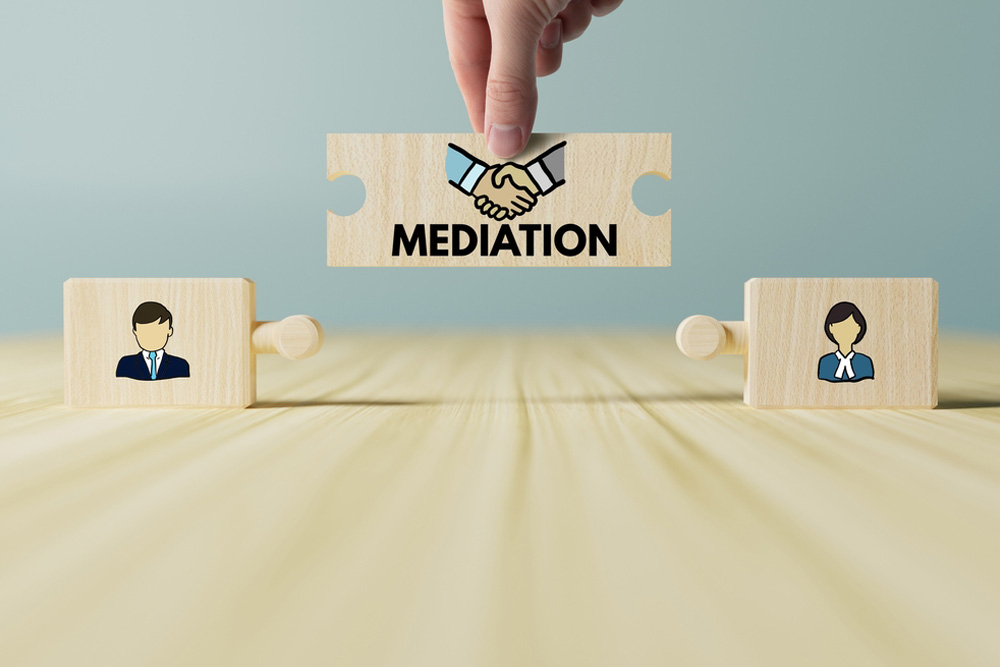
Mediation Lawyer
In the evolving landscape of family law, mediation has become an increasingly popular method for resolving disputes without the need for lengthy and contentious court battles. Mediation offers a more amicable and collaborative approach to settling issues such as divorce, child custody, and property division. For modern families, where the definition of marriage and relationships is continuously changing, mediation provides a flexible and less adversarial way to navigate complex family dynamics. If you’re considering mediation, having an experienced mediation lawyer can make a significant difference in achieving a fair and mutually agreeable outcome.What is Mediation in Family Law?
Mediation is a voluntary process in which a neutral third party, known as a mediator, helps disputing parties reach a mutually acceptable agreement. Unlike traditional litigation, where a judge makes the final decision, mediation empowers the parties involved to negotiate and control the outcome of their case. The mediator’s role is to facilitate communication, help identify issues, and explore possible solutions, but they do not impose a decision. is commonly used in family law cases involving:- Divorce: Mediation can help couples negotiate the terms of their divorce, including the division of assets and debts, spousal support, and other financial matters.
- Child Custody and Visitation: Mediation is often used to create a parenting plan that outlines custody arrangements, visitation schedules, and decision-making responsibilities for the children.
- Child Support: Mediation can be used to agree on child support payments, ensuring that the financial needs of the children are met.
- Property Division: For couples with significant assets, mediation can help in dividing property, real estate, and other valuables in a way that is fair to both parties.
Benefits of Mediation in Family Law
Mediation offers several advantages over traditional litigation, making it an attractive option for many families:- Control Over the Outcome: In mediation, the parties have more control over the final agreement. This can lead to more tailored and satisfactory solutions that meet the specific needs of the family.
- Confidentiality: Unlike court proceedings, which are public, mediation is a private process. The discussions and agreements made in mediation are confidential, protecting the privacy of the parties involved.
- Cost-Effective: Mediation is typically less expensive than going to court. By avoiding a lengthy trial, parties can save on legal fees and other associated costs.
- Less Stressful: The collaborative nature of mediation often reduces the stress and emotional strain that comes with adversarial court proceedings. Mediation fosters a cooperative environment where both parties can communicate openly.
- Faster Resolution: Mediation can lead to a faster resolution compared to traditional litigation, which can drag on for months or even years. This is particularly beneficial for families who want to move forward with their lives.
- Preserves Relationships: Mediation focuses on collaboration rather than confrontation, which can help preserve relationships, especially when children are involved. This is important for parents who need to maintain a cooperative relationship for the sake of their children.
The Role of a Mediation Lawyer
While a mediator facilitates the process, a mediation lawyer represents one party’s interests and provides legal advice throughout the mediation. Here’s how a mediation lawyer can assist you:- Preparing for Mediation: A mediation lawyer will help you prepare for the process by identifying your goals, gathering necessary documents, and understanding the legal implications of potential agreements. This preparation ensures that you enter mediation with a clear understanding of your rights and options.
- Legal Advice: During mediation, your lawyer will provide you with legal advice and guidance, helping you understand the consequences of different proposals and agreements. This ensures that any agreement reached is in your best interest and complies with California law.
- Negotiation Support: A mediation lawyer can help you negotiate effectively by advocating for your interests while also working towards a mutually acceptable solution. They can help you identify areas of compromise and ensure that your concerns are addressed.
- Drafting Agreements: Once an agreement is reached, your lawyer will assist in drafting the final settlement documents, ensuring that they accurately reflect the terms of the agreement and are legally enforceable.
- Reviewing the Agreement: Before finalizing the mediation agreement, your lawyer will review it to ensure that all legal requirements are met and that the agreement is fair and in your best interest.
- Court Approval: In some cases, the mediated agreement may need to be submitted to the court for approval. Your lawyer can handle this process, ensuring that the agreement is legally binding and enforceable.

